How Do You Store Items in a safe?
February 24, 2023
The reason to use a safe is in the name: “To keep stuff SAFE”! But sometimes, just throwing something important into your home safe unwrapped and unprotected obviously isn’t the best way to keep it secure and protect it from harm. So how can you store different kinds of things in a safe? In this article, we’ll go over how to wrap and store different kinds of items in a safe to protect and keep your valuables out of risk.
What kind of safe should I use?
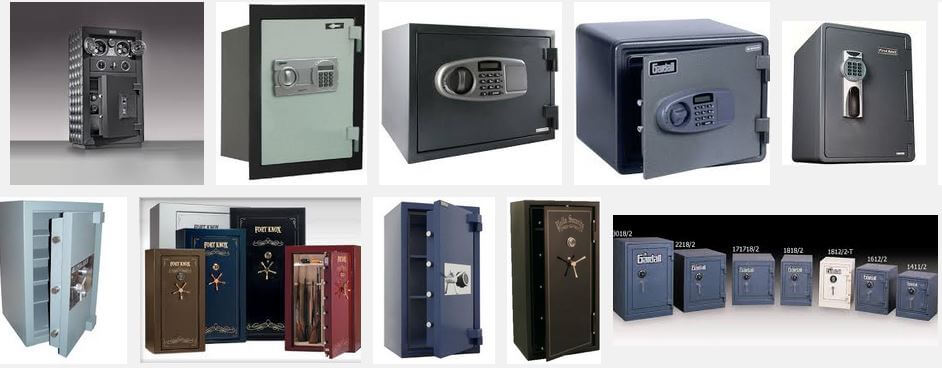
Now, before we even learn how to pack stuff into a safe, we need to know what KIND of safe we need in the first place. This step normally needs some pretty common sense.
When choosing a safe for your belongings and valuables, ask yourself questions like “How important are the things I’m wanting to keep safe?” “What’s the best way to keep my things of value out of the wrong hands and keep them in my own hands?” Don’t overdo your security though, your stuffed teddy bear from your childhood doesn’t NEED to be kept in its own fire and waterproof safe with a thumb drive monitored by several security cameras. For that maybe you can just keep it in, say, an average home safe with a keypad.
You also don’t want to UNDER PROTECT your things of value though, such as money, an important key, social security cards, digital copies of documents, birth certificates, family heirlooms, large or small amounts of jewelry, important family photos, or anything essential to your life that you CANNOT lose. The best kinds of safes to use and are easy to come by are fireproof safes, a storage unit, or safes that are safe from water damage or have a simple enough lock of some kind. Simple home safes like these are good because they give a good amount of protection, they quickly give you access to your valuables or things of value, and they cost a fraction of a bank safe or one watched over by a third party.
Where should I store my home safe?
This answer can vary from person to person depending on how big, open, or small your house is. But I would say that some of the best places to hide or store your safe is to install it in the wall, in the attic, in your garage somewhere, behind furniture or in your closet up high. Anywhere where almost no heat or moisture can reach the safe so as to not affect the valuables inside in any way.
Installing a safe into your walls can be very dangerous, however, especially near your laundry room or anywhere near something giving off moisture or heat, like a fridge, and ESPECIALLY if you’re wanting to install an electronic safe.
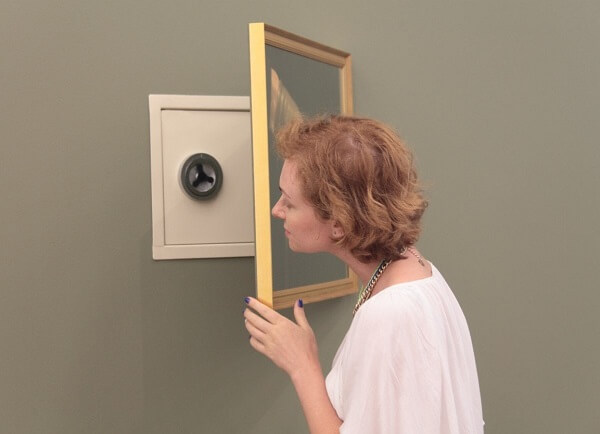
If you do install your safe close to something similar to these appliances, this could tarnish your belongings inside the safe, and put the protection of your valuables at risk. Make sure that if you’re wanting to install an electronic safe somewhere where moisture and heat can’t reach as well.
How do I store different kinds of items in a safe?
Now we’re getting into the juicy part of this article. Obviously, you can’t just grab your social security card and valuable items and throw it into your new safe and lock it up. There are specific ways to put different kinds of items in your safe to keep it properly secure and locked up tight and safe from fire, water, pets, children, and theft. Let’s go over some ways to keep your most valuable items from being harmed.
1. Firearms
Keeping firearms in a safe is very tricky, as there are a lot of laws on keeping your firearm in your household. However, if you follow all rules and regulations, it is possible. When putting your gun away, make sure it is safely inside its case or holster, and before putting it inside, MAKE SURE IT’S ON SAFETY! You don’t want a thief or a child getting their hands on your firearm that should be used for protection and to keep your home safe.
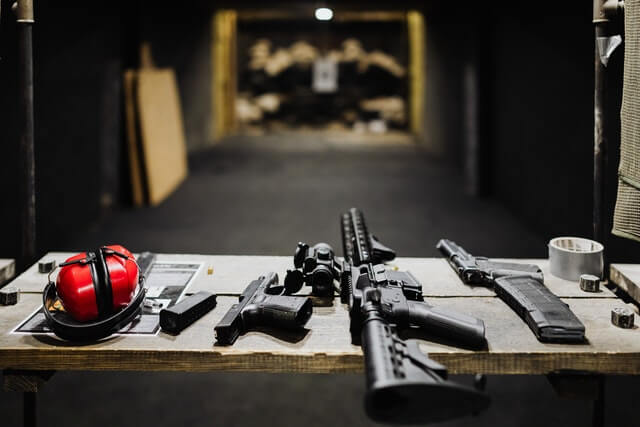
Also, keep the ammo for that gun in a SEPARATE location, so if someone DOES break into your safe, they can’t use the weapon on you or anyone you love. Make sure only you and the ones you trust know where the ammo to the weapon is. Once again, when owning and safely storing your gun in your home safe, make sure to follow ALL local, state, and federal laws on storing a weapon in your home.
2. Important Documents
Depending on what kind of documents you’re trying to keep safe and secure, these might be one of the most important things to keep safe in case of an emergency or disaster, so pay attention to how you properly store them. The term important documents contain things like social security cards, a key to something, your birth certificates, personal documents, important documents, or any other items that are very important to your life on paper.
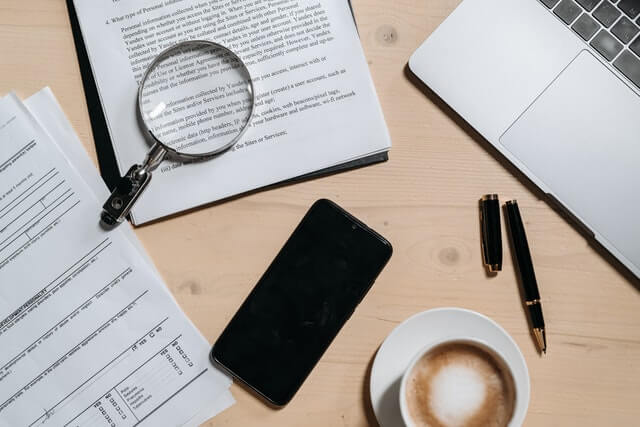
First, make sure your safe is in a cool and dry area. Then, wrap your important document in acid-free paper. This paper will make sure that your documents won’t be affected by acid, provide protection from small cuts, and keep them snugly protected while stored. This isn’t NEEDED, but it is just another thing to make sure your document or documents are safe in storage.
Another very smart thing you can do to 100% keep your documents safe is make digital files of the desired documents, keep it on your computer safely, and put the original documents stored safely. This will make sure the document will never be TOTALLY lost or stolen forever, and you’ll have a digital version in case of emergencies. Most people don’t think of doing this, but it is a surefire way you’ll have another version of it in case the house burns down or is flooded, or any other kind of disaster happens to the original. Use this method especially with social security details, birth certificates, important documents, documents connected to you, or other items that can’t be recreated.
3. Electronics
These are very tricky to store, especially for a long time, but as long as you store these correctly in your home safe, they will be protected. Again, make sure your safe is in a nice dry, away from heat place. Then, put your electronic into an anti-static bag. An anti-static bag will insure that your electronic device won’t be affected by static or other harmful things that could damage the insides of it. It will also protect your device from the elements, such as rain or fire or hail.
Once again, make sure when storing something, your home safe is protected from fire just in case. This goes with anything moving forward, as once something is scorned or burned, it cannot be reversed. Also make sure only you or people you trust know where the key is, or the lock code to the home safe. For security reasons, only share this info with few, to prevent theft.
4. Jewelry
These are one of the big things you think of when someone is trying to steal something, so make sure the jewelry is stored as well as you can. Put it in an airtight container or pouch to prevent it from tarnishing your expensive items. If your jewelry is very small, put it in a small pouch and as few in each as possible to prevent them from scratching and tarnishing each other. Then, line the bottom of your safe with some sort of fabric or soft cloth to make sure the bottom of the jewelry doesn’t get scratched up. Once again, we’re trying to prevent damage to your valuable items as much as we can. Then you can just set them inside gently and lock it up tight.
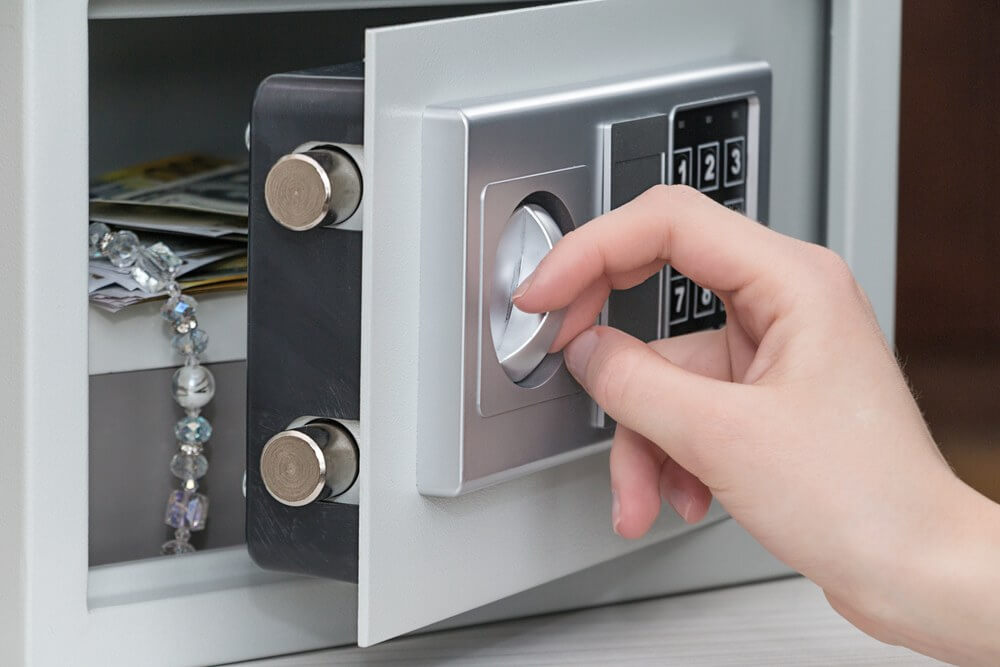
If the jewelry has a high cost, make sure the things you stored are in bags and cloth as soft and thick as possible. If your house or home safe are in flames or on fire, make sure to get the bags and cloth out of the home safe, as they will go up in flames INSTANTLY!
5. Cash
cash is also something you think of when theft is involved, so this is another thing you should really make sure is safe in your home safe. Just like your documents, wrap them up in acid-free paper to prevent burns or tears or cuts, and set them inside. However, make sure to wrap up the cash or emergency cash in stacks and make sure to keep them from sticking outside of the acid-free paper, or the whole bill could be ruined.

Again, cash has a very high cost to thieves, so make sure you keep it as safe as possible and stored correctly. And if it’s emergency cash, you don’t want that getting stolen when you need it. Security cameras on any of your important documents or things in your home safe might not hurt either, depending on how important they are in the long run. Cash, especially emergency cash, should have easy access only to YOU in case of financial emergency. Don’t let your own security get in your way too much!
So there you have it! There are some ways you can keep your valuable things, documents, and things with sentimental value stored safely in your home safe from thieves and the elements. Just remember the most important thing about your home safe. Don’t forget your key or password to the safe, or you’ll be in a whole lot of trouble!
